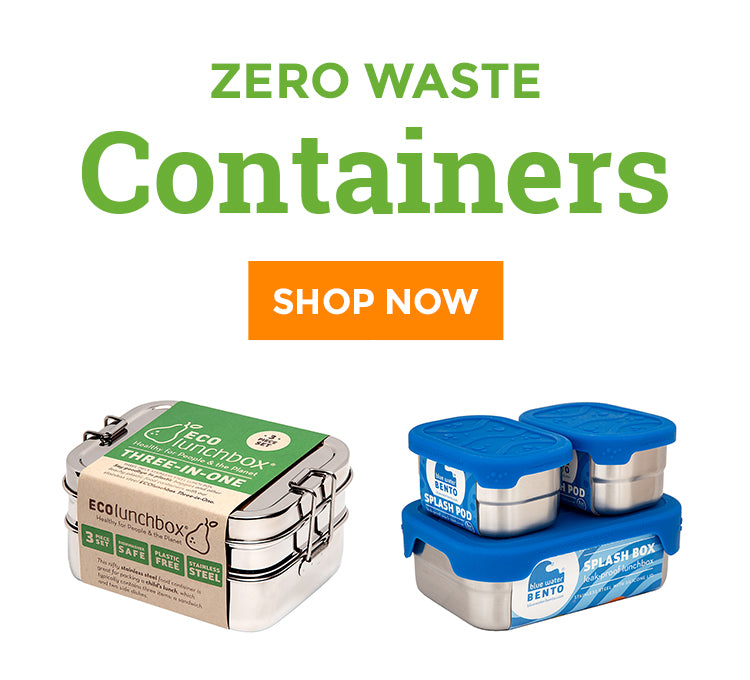Best Tips For Green Boating

Love our Big Blue? Go green while boating by following these easy tips.
We all know the feeling of being out on the water, the wind in our hair and the sun on our face. It's a feeling of freedom and adventure that can't be beat. But as we enjoy our time on the water, it's important to remember that our actions can have a big impact on the ocean and marine life.
That's why we want to share some tips for being a "green boater" and doing our part to protect the ocean for future generations.
Being a “green boater” is all about being mindful of the impact our actions can have on the ocean and marine life. By following our green boating tips, we can reduce our use of single-use plastics, minimize our fuel consumption and emissions, protect marine wildlife and protected areas, avoid introducing invasive species, and choose personal care and cleaning products that are non-toxic and eco-friendly.
Read on for specific action steps you can take to green up your act when you’re out on the water sailing, power boating or something else. Here's the good news, it's easy to reduce our use of single-use plastics with these tips!
Avoid single-use plastics
Choose non-toxic products
Avoid sensitive wildlife area
Be mindful of emissions
Here are a few tips to avoid plastic waste while boating.
A lot of packaged food comes wrapped in plastic, which can blow or wash away into the ocean and have a devastating effect on marine life. Opt for food purchased in bulk and packed in reusable containers made from non-breakable, plastic-free stainless steel instead.
To reduce the amount of trash you generate, plan ahead and tell your whole crew everyone should bring a reusable water bottle, coffee mug, cutlery, napkin and anything else they’ll need for meals. Ditch single-use plastic bottles, utensils, straws and other stuff that will fill up your boat’s trash can and pollute our oceans.
Avoid single-use products that masquerade as eco-friendly options, like “paper” plates, “plant-based” plastics, and “biodegradable” wipes. These products and others aren’t what they seem! So-called “paper” plates, for example, are typically coated with plastic so they’re moisture resistant. Plant-based plastics made of corn or other bio waste are falsely advertised as biodegradable. Don’t be fooled by wipes labeled as biodegradable either because 90% of wipes contain synthetic fibers (often polyester, which is a type of plastic) that will not break down.
Green boating is a team sport, so make sure during your captain’s briefing loops in all your participants, letting them know you’re following green boating practices. Explain they can’t assume waste will biodegrade if discarded or accidentally blown overboard. So point out where you’d like folks to put glass, metal and clean paper recyclables. Make sure the bins are clearly labeled. Same thing for trash. Label a trash bag or sealable bin that’s easy to carry off the boat and dispose of when you’re back on shore.
Choose personal care and cleaning products that are non-harming for marine life.
- Use biodegradable soaps and shampoos when showering on the boat, rather than products that contain harmful chemicals.
- Use sunscreens that don't have harmful chemicals. Some sunscreens contain chemicals that can harm marine life and coral reefs. Look for sunscreens that use mineral ingredients such as zinc oxide or titanium dioxide.
- Use non-toxic cleaning products, such as vinegar and baking soda, to clean your boat.
- Avoid using harsh chemicals like bleach, which can harm marine life.
- Choose personal care products that are free of microbeads, which are tiny plastic beads that can end up in our oceans and harm marine life.
- Use eco-friendly laundry detergent.

Be mindful of marine wildlife and protected areas.
Many areas are designated as protected for a reason, such as to provide a habitat for endangered species or to preserve natural ecosystems. Avoid boating near these areas or disturbing marine wildlife.
Take precautions to avoid introducing invasive species. Invasive species can cause harm to native species and can disrupt the balance of the ecosystem. Clean your boat and equipment before moving to a new area to avoid spreading invasive species.
Don’t forget your carbon footprint!
Another way to be a green boater is to be mindful of our fuel consumption and emissions. Use eco-friendly fuel alternatives such as biofuels or electric motors.
- Optimize the performance of your boat by reducing drag and weight.
- Use a fuel-efficient routing plan to minimize the distance traveled.
- Avoid idling in the engine and turn it off when not in use.
- Use a fuel flow meter to monitor and track your fuel consumption.
- Always follow proper boating and maritime laws to minimize the risk of oil spills.
We all love being out on the water, and by following these tips, we can continue to enjoy it while also doing our part to protect the ocean from plastic pollution and other contaminants for future generations. Remember, every little effort counts, and by working together, we can make a big difference.





